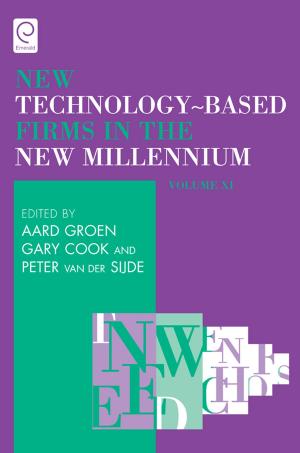Project Management
A Multi-Perspective Leadership Framework
Business & Finance, Management & Leadership, Planning & Forecasting, Management| Author: | Professor Jens O. Riis, Professor Hans Mikkelsen | ISBN: | 9781787432666 |
| Publisher: | Emerald Publishing Limited | Publication: | October 23, 2017 |
| Imprint: | Emerald Publishing Limited | Language: | English |
| Author: | Professor Jens O. Riis, Professor Hans Mikkelsen |
| ISBN: | 9781787432666 |
| Publisher: | Emerald Publishing Limited |
| Publication: | October 23, 2017 |
| Imprint: | Emerald Publishing Limited |
| Language: | English |
Modern projects are confronted with complexity and ambiguity. To provide a holistic framework, this book presents five core elements of a project: project management, project task, stakeholders, resources, and project environment. This model is used to identify the nature of a specific project and to develop appropriate project solutions for business success. It also allows a circular planning process that gradually leads to coherence among these five elements.
To better cope with the complexity of the project environment, the authors adopt a multi-perspective framework that considers technical, business, organisational, and stakeholder perspectives. This framework recommends that change management is viewed as an integral part of a project.
This book is organized in two, almost equal parts: a theoretical part that covers the key models and issues related to project management, and a set of appendices, which include a number of tool sheets aimed at providing practical methods, techniques and checklists. By integrating the theoretical and the practical, the authors extend and rethink recent developments in agile and lean approaches to project management.
Modern projects are confronted with complexity and ambiguity. To provide a holistic framework, this book presents five core elements of a project: project management, project task, stakeholders, resources, and project environment. This model is used to identify the nature of a specific project and to develop appropriate project solutions for business success. It also allows a circular planning process that gradually leads to coherence among these five elements.
To better cope with the complexity of the project environment, the authors adopt a multi-perspective framework that considers technical, business, organisational, and stakeholder perspectives. This framework recommends that change management is viewed as an integral part of a project.
This book is organized in two, almost equal parts: a theoretical part that covers the key models and issues related to project management, and a set of appendices, which include a number of tool sheets aimed at providing practical methods, techniques and checklists. By integrating the theoretical and the practical, the authors extend and rethink recent developments in agile and lean approaches to project management.















